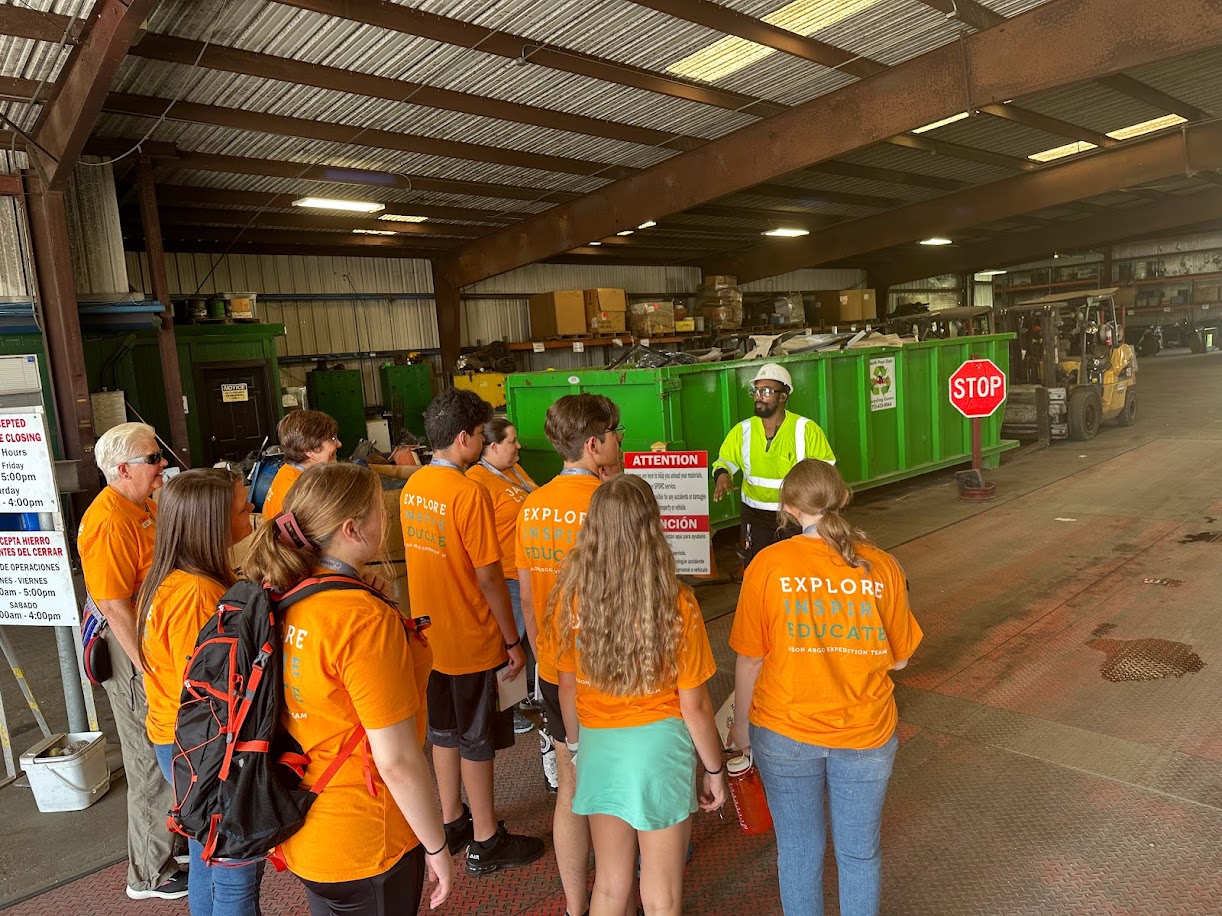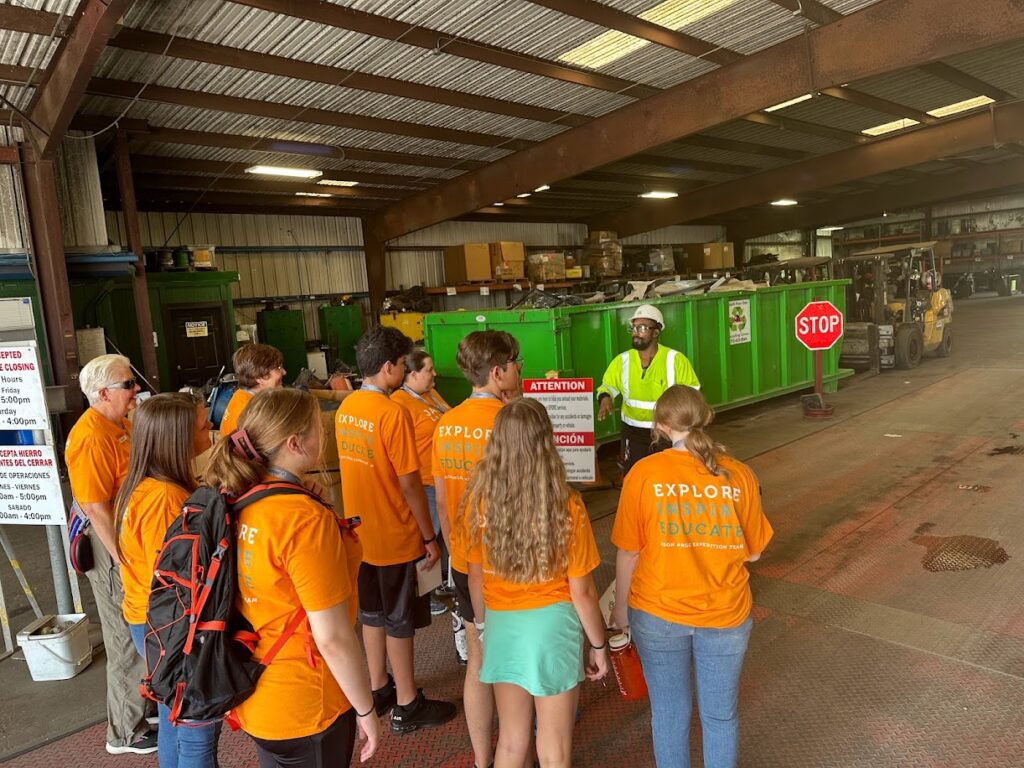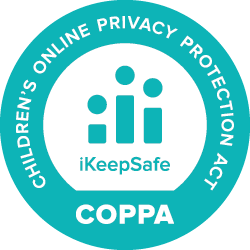Design thinking is the driving force behind innovation and entrepreneurship. It empowers individuals to create impactful solutions by understanding customer needs, iterating on ideas, and embracing a mindset of continuous learning. In the realm of entrepreneurship, it’s not just about building great solutions but also effectively pitching them to investors. In this blog, we explore how JASON Learning’s 2023 Argonaut Expedition, “Design Thinking, Innovation, & Entrepreneurship” in Houston, TX, integrated the “Reduce, Reuse, Repurpose” challenge from North Carolina State University (NCSU) and JASON’s Design and Pitch Challenges in STEM.
Design and Pitch Challenges in STEM
Design and Pitch Challenges in STEM require students to think like entrepreneurs, developing real solutions to complex STEM problems. By utilizing their knowledge and creativity, students invent products that meet customer needs while considering sustainability and resource utilization. At the end of each challenge, students must present a persuasive pitch to a panel of judges, convincing them that their solution is worthy of funding.
The “Reduce, Reuse, Repurpose” Challenge (located in Design & Pitch Challenges in STEM, Round 2) implores students to design a product that brings new life to waste made of non-renewable resources that are thrown away by people every day.
The Argonaut Expedition Experience
During the months leading up to the “Design Thinking, Innovation, & Entrepreneurship” expedition, Argonauts dedicated themselves to developing solutions for the “Reduce, Reuse, Repurpose” challenge. Once on the expedition, they had the opportunity to meet real-world entrepreneurs in Houston, gaining invaluable insights and inspiration.
As part of the expedition, the Argonauts visited the South Post Oak Recycling Center (SPORC), where they delved into the intersection of STEM and the recycling industry. The Argonauts met a JASON role model in real-life, Brandi Harleaux, the CEO of SPORC and STEM Challenge Champion for the “Reduce, Reuse, Repurpose” challenge. Brandi shared her background story and emphasized the importance of community involvement, discussing the ethics, economics, and cutting-edge aspects of recycling. Her journey served as an inspiration for the Argonauts, showcasing the potential impact of entrepreneurship in sustainability efforts.
At SPORC, the Argonauts discovered firsthand how mathematics is crucial to the center’s daily operations. They explored the significance of scales and scale weights, understanding how accurate measurements directly influence business practices. By observing the precise weighing of recycled materials, the students grasped the importance of efficiency and data analysis in optimizing resource utilization. The Argonauts also discovered chemistry’s essential role in the recycling industry. SPORC demonstrated how chemical analysis is employed to identify different types of metals and assess their quality. This understanding enabled the students to recognize the scientific intricacies behind recycling processes and appreciate the importance of separating materials to maximize their reuse potential.
The Argonauts were able to connect their knowledge gained from the “Reduce, Reuse, Repurpose” Challenge with its practical applications in real-world situations at SPORC. This immersive experience allowed them to see the direct implementation of sustainable practices, reinforcing the importance of their efforts in designing innovative solutions that address the challenges of waste reduction and repurposing.
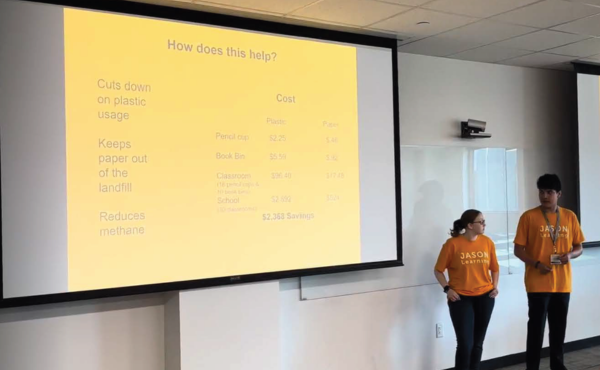

Pitching Solutions: Nurturing Entrepreneurial Growth
The Argonauts embraced a vital aspect of the Design and Pitch Challenges and entrepreneurship by presenting their solutions and seeking feedback from experts from the University of Houston Clear-Lake. Through this process, they honed their presentation skills, refined their ideas, and gained valuable insights to improve their solutions. The act of pitching allows students to showcase their innovative concepts, articulate the problem they are addressing, and demonstrate the potential impact of their solutions. This iterative process fosters resilience, adaptability, and the ability to effectively communicate ideas, preparing the Argonauts for future entrepreneurial endeavors. By actively engaging in the feedback loop, the Argonauts not only refined their solutions but also developed the critical skills necessary for success in the dynamic world of entrepreneurship.
The Role of Math in Supporting Solutions
Mathematics played a crucial role in the Argonauts’ journey, enabling them to develop robust solutions. One notable example comes from the Genessee Valley ISD, where an Argonaut excelled in leveraging mathematical skills to support their team. Their ability to analyze data, calculate resource efficiencies, and make informed decisions strengthened the overall solution.
The integration of the “Reduce, Reuse, Repurpose” challenge into JASON Learning’s Argonaut Expedition showcased the power of design thinking, innovation, and entrepreneurship in addressing real-world problems. Students not only developed creative solutions but also honed their presentation skills, making them capable of pitching their ideas effectively. By fostering the entrepreneurial mindset and incorporating math as a supporting tool, this expedition empowered students to become future leaders in sustainable innovation.
